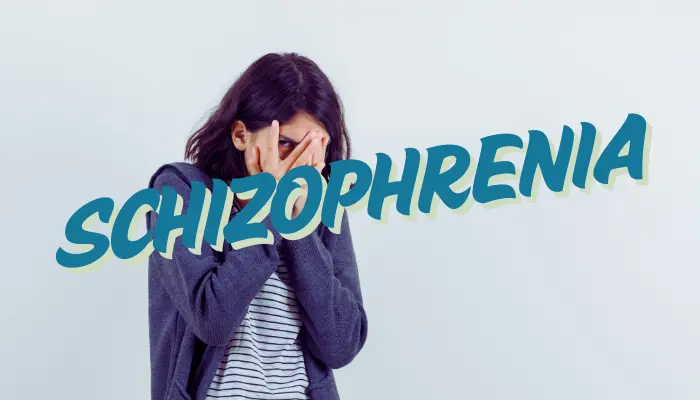Schizophrenia is a serious mental disorder that causes profound changes in a person’s thoughts, feelings, and behavior. It is a long-term mental illness that disrupts the ability to perceive reality. Millions of people worldwide suffer from this disease, and it has a huge impact on society, personal life, and professional life.
It is mainly manifested by hallucinations, delusions, disorganized thinking, a lack of emotional expression, and social isolation. The symptoms of this disease can appear differently for each person. In some cases, it appears gradually, while in others it may appear suddenly. Positive symptoms of schizophrenia include hallucinations (seeing or hearing things that are not real), delusions (false beliefs), and disorganized thinking. On the other hand, negative symptoms include emotionlessness, social isolation, and lack of motivation.
The specific cause of this disease is not yet fully known, but genetics, brain chemical imbalances, environmental influences, and psychological stress are considered to be among the factors that cause it. With proper treatment and therapy, a person with schizophrenia can lead a normal life. With the advancement of modern medicine, it has become much easier to control this disease. This blog will discuss the symptoms, causes, treatment, and disease in more detail.
Common Symptoms of Schizophrenia
The symptoms of this are generally divided into three categories: positive symptoms, negative symptoms, and cognitive symptoms.
Positive symptoms:
- Hallucinations (hearing voices or seeing things that are not there)
- Delusions (false beliefs, such as the false idea of being persecuted)
- Disorganized thinking and speech
- Catatonia or movement problems
Negative symptoms:
- Lack of emotional expression
- Inability to experience pleasure
- Social withdrawal
- Lack of motivation
Cognitive symptoms:
- Memory impairment
- Difficulty maintaining attention
- Difficulty making decisions
Symptoms of schizophrenia in adults
In adults, the disease usually manifests itself gradually. Initially, patients may become depressed, anxious, or suspicious. Over time, hallucinations, delusions, and lack of coherent thought are observed.
Symptoms of schizophrenia in children
Although this in children is very rare, it is seen in some cases. Common symptoms include:
- Language delay
- Abnormal behavior
- Reluctance to socialize
- Feeling detached from reality
Symptoms of schizophrenia in adolescents
In adolescents, it usually manifests itself through depression, anxiety, or behavioral problems. Symptoms include:
- Preferring to be alone
- Loss of interest in studies
- Sudden mood swings
- Hallucinations and delusions
Symptoms of schizophrenia in women
Women usually show symptoms of the disease later, and their symptoms are relatively mild. They are more likely to have emotional problems and are more socially connected.
Symptoms of schizophrenia in men
In men, it usually manifests itself in their teens or twenties, and the symptoms are more severe. They may avoid social interactions and may also have difficulty maintaining personal hygiene.
5 main symptoms of schizophrenia
- Delusions
- Hallucinations
- Disorganized thinking
- Apathy
- Social isolation
Can schizophrenia lead a normal life?
With the right treatment and social support, a person with schizophrenia can lead a normal life. Although it is not completely curable, it is possible to control the symptoms with regular treatment.
What is the best treatment for schizophrenia?
Schizophrenia is mainly treated in three main ways:
- Medication: Symptoms are controlled through the use of antipsychotic medications.
- Therapy: Counseling and cognitive-behavioral therapy (CBT) help the patient mentally.
- Family support: The support of family members plays an important role in the patient’s improvement.
Causes of Schizophrenia
Although the exact cause of this is not known, some common causes are:
- Genetic or hereditary influences
- Chemical imbalances in the brain
- Malnutrition or infection during pregnancy
- Stress and trauma
- Substance abuse
Symptoms of paranoid schizophrenia
The main characteristics of this type of behavior are excessive suspiciousness and delusions. Patients believe that someone is trying to harm them or that they have special powers.
Schizophrenia tests
- To diagnose schizophrenia:
- Psychological evaluation
- Physical examination
- Blood tests and imaging (MRI, CT Scan)
Types of Schizophrenia
There are different types of schizophrenia:
- Paranoid Schizophrenia
- Disorganized Schizophrenia
- Catatonic Schizophrenia
- Residual Schizophrenia
- Undifferentiated Schizophrenia
Positive Symptoms of this
Positive symptoms are:
- Hallucinations
- Delusions
- Abnormal Behavior
- Disorganized Thoughts and Speech
Finalism
Although it is a complex mental disorder, it is possible to control it. With appropriate treatment, social support, and lifestyle changes, a person with schizophrenia can also lead a normal life. By raising awareness about mental health, we can help people with this disease.





